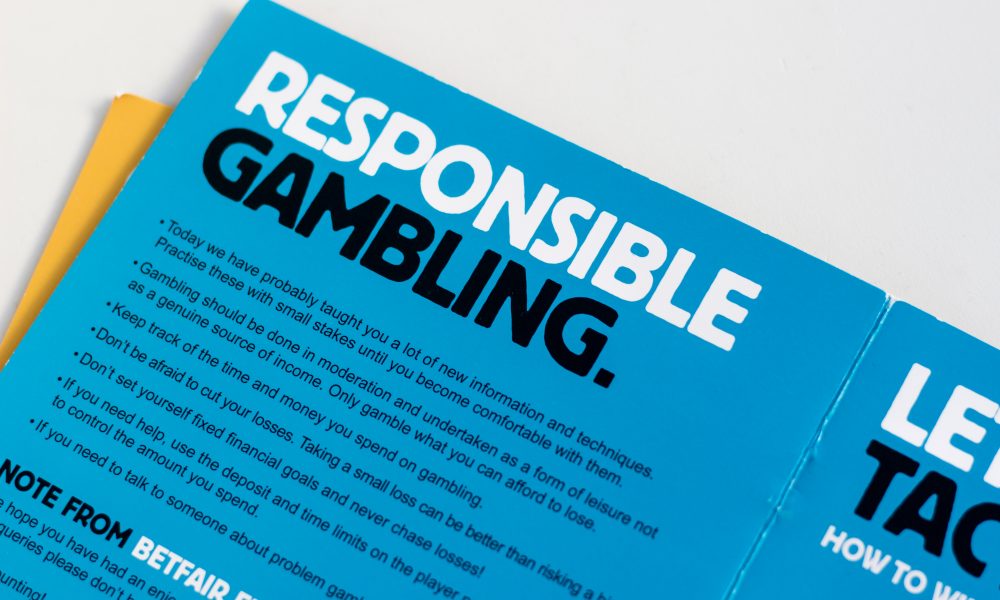
Responsible gambling is a crucial aspect of the gambling industry, focusing on promoting safer practices and preventing gambling addiction
While gambling can be an enjoyable form of entertainment, it is essential to ensure that individuals engage in it responsibly. This article explores the importance of responsible gambling, the measures implemented to foster a safe gambling environment, and the role of various stakeholders in preventing and addressing gambling addiction
1. Understanding Responsible Gambling:
Responsible gambling refers to the concept of gambling in a way that is mindful of potential risks and prioritizes the well-being of individuals involved. It involves self-awareness, informed decision-making, and setting limits to prevent gambling from becoming problematic. Responsible gambling aims to balance the entertainment value of gambling with minimizing harm and negative consequences.
2. Education and Awareness:
One of the key pillars of responsible gambling is education and awareness. Operators, regulators, and community organizations play a vital role in providing information about the risks associated with gambling, signs of addiction, and available support services. Educational campaigns help individuals make informed choices, understand the odds, and recognize the importance of setting limits and maintaining control while gambling.
3. Self-Exclusion and Cooling-Off Periods:
To support responsible gambling, many gambling operators offer self-exclusion programs and cooling-off periods. Self-exclusion allows individuals to voluntarily ban themselves from participating in gambling activities for a specified period, often with the option for longer-term exclusion. Cooling-off periods provide individuals with the opportunity to take a break from gambling, allowing time for reflection and reassessment of their habits and behaviors.
4. Responsible Advertising and Marketing:
Responsible gambling also extends to advertising and marketing practices within the industry. Operators are encouraged to promote responsible gambling messages and avoid targeting vulnerable individuals. Clear and transparent advertising, including the inclusion of responsible gambling helpline information, can help individuals make informed decisions and seek help when needed.
5. Player Support Services:
Support services are a crucial component of responsible gambling efforts. Helplines, counseling services, and support groups provide a lifeline for individuals who may be experiencing gambling-related problems. These services offer confidential assistance, advice, and resources for those seeking help for themselves or someone they know who is struggling with gambling addiction.
6. Collaboration among Stakeholders:
Effective responsible gambling initiatives require collaboration among various stakeholders. This includes gambling operators, regulators, healthcare professionals, community organizations, and government agencies. By working together, these stakeholders can share best practices, develop robust prevention and treatment programs, and implement policies that prioritize player protection and responsible gambling practices.
7. Research and Innovation:
Continued research and innovation play a crucial role in advancing responsible gambling practices. Studies help identify risk factors, understand the psychological aspects of gambling addiction, and evaluate the effectiveness of prevention and treatment methods. Technological advancements can be leveraged to develop tools and features that assist individuals in managing their gambling habits, such as self-assessment tests, spending limits, and reality checks.
8. Continuous Evaluation and Improvement:
Responsible gambling is an ongoing process that requires continuous evaluation and improvement. Regular assessment of responsible gambling measures helps identify areas for enhancement and adapt to emerging trends and challenges. Feedback from players, industry experts, and support services can provide valuable insights to refine strategies and ensure the effectiveness of responsible gambling initiatives.
Conclusion:
Responsible gambling is a shared responsibility among gambling operators, regulators, individuals, and society as a whole. By promoting safer practices, raising awareness, and offering support services, the industry can mitigate the risks associated with gambling addiction and create a safer gambling environment. Through collaboration, education, and continuous evaluation, responsible gambling practices can help individuals enjoy gambling as a form of entertainment while preventing and addressing the potential harms of excessive gambling.


